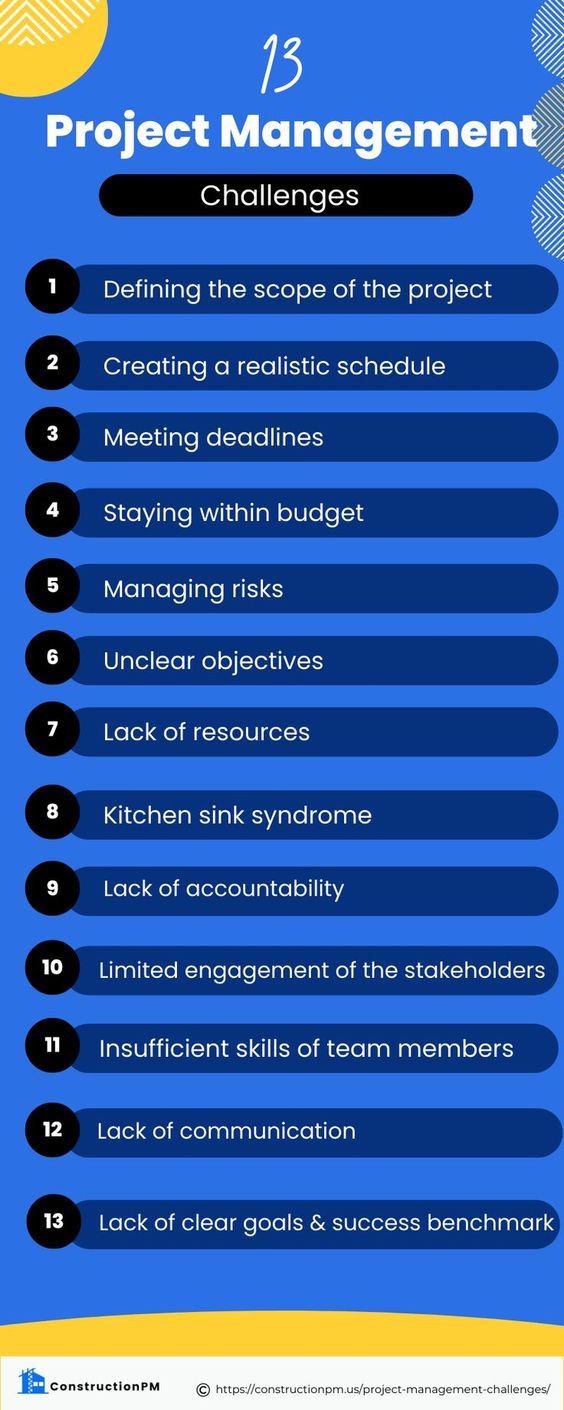Understanding Construction Project Management
The goal of construction project management is to ensure that a project is completed on time, within budget, and to the satisfaction of stakeholders. The project manager is responsible for coordinating all aspects of the project, including planning, design, construction, and closeout. Construction projects are often complex and require careful planning and execution to achieve success.
Traditional Project Management
Traditional project management is a methodology that has been used for years in the construction industry. It involves planning and executing a project in a linear sequence, with a clear beginning and end. The project manager creates a detailed project plan that outlines all of the project’s tasks and deadlines, and then monitors progress against that plan. The main advantage of traditional project management is that it provides a clear roadmap for the project team to follow.
Agile Project Management
Agile project management is a methodology that is becoming more popular in the construction industry. It involves breaking a project down into smaller, iterative cycles or sprints. The team works collaboratively to complete the tasks within each sprint and then regroups to plan the next one. Agile project management is highly flexible and allows for changes to be made quickly and easily. This methodology is ideal for construction projects that may be subject to change.
Lean Project Management
Lean project management is a methodology that focuses on minimizing waste and maximizing value. It involves removing any unnecessary steps or processes from the project to create a streamlined workflow. Lean project management is often used in construction projects that have a tight schedule or budget.
Integrated Project Delivery
Integrated project delivery is a collaborative methodology that brings together all stakeholders in a construction project. This includes the owner, architect, contractors, and subcontractors. The project team works together from the beginning of the project to ensure that everyone is aligned with the project goals and objectives. This methodology is ideal for complex construction projects that require close collaboration between all parties.
Building Information Modeling
Building information modeling (BIM) is a methodology that uses 3D modeling technology to create a digital representation of a construction project. The BIM model can be used to visualize the project, identify potential conflicts, and optimize the design before construction begins. BIM is an ideal methodology for large, complex construction projects.
Lean Construction
Lean construction is a methodology that applies lean principles to the construction industry. It involves the elimination of waste, maximizing value, and continuous improvement. This methodology focuses on creating a culture of continuous improvement within the project team. Lean construction is ideal for construction projects that have a focus on sustainability and minimizing waste.
You might find these FREE courses useful
- Combining Scrum with Other Agile Methodologies
- 7 In-Demand Scrum Master Certifications 2023
- Introduction to Agile Development and Scrum
- Scrum Master Certification Specialization
Critical Path Method
The critical path method (CPM) is a methodology that uses a network diagram to plan and schedule a project. Every task in the project is assigned a duration and dependencies are defined between tasks. This allows the project manager to identify the critical path of the project, which is the sequence of tasks that must be completed on time for the project to stay on schedule. CPM is an ideal methodology for construction projects that have a tight schedule.
In conclusion, there are many different project management methodologies available for construction projects. Each of these methodologies has its own unique strengths and weaknesses. By understanding the different methodologies available, you can select the one that is best suited for your project’s needs. Whether you choose traditional project management, agile project management, lean project management, integrated project delivery, BIM, lean construction, or the critical path method, the key to success is to ensure that everyone on the project team is aligned with the project goals and objectives.
